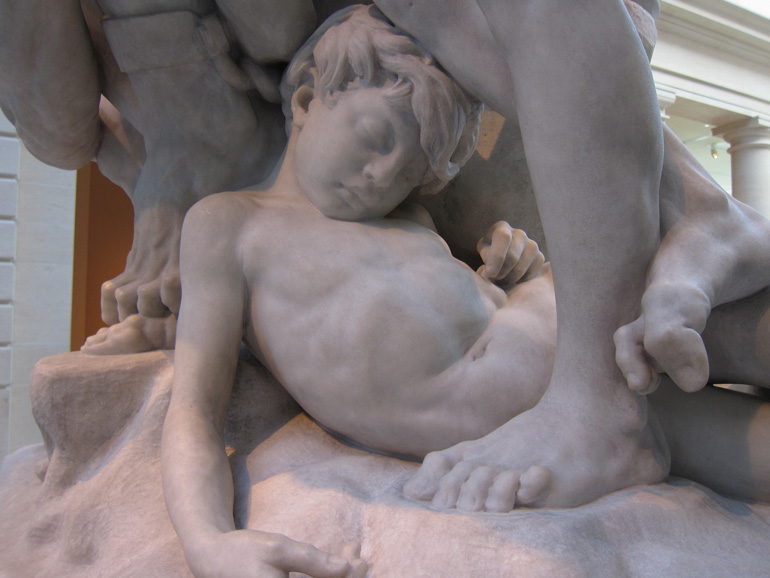Gotham Diary:
Common Sense
17 September 2013
As I wrote yesterday, I was surprised by Diarmaid MacCulloch’s acknowledgment of his homosexuality, in the Introduction to his new book, Silence: A Christian History. It was a complex surprise, registering at several levels and in different connections. At the heart of the surprise, I suppose, is my age: I have lived from one era into another. So, I daresay, has MacCulloch, which also may explain why he makes the acknowledgment in this particular book.
The news that MacCulloch is gay is not the surprise. That kind of news is no news at all. But of course I can remember when it would have been — not just news, but shocking news. If the acknowledgment were made in print at all, it would be in connection with an arrest, or some other unsavory brush with the law. When I read the acknowledgment now, my response is duplex and wildly inconsistent: So what? layered over Oh, no! — dismay, not about the sexuality, but about the embarrassing legal tangle, with its train of broken marriage, lost job, social shunning, and so on.
In those days, the statement, “I am homosexual” was tantamount to “Now that I have confessed that, I am a likely suicide.” But today, as I say, it is no news at all. It means — what? It refers to the most preliminary of healthy sexual inclinations, an attraction to one gender or the other; there are only two. The information inherent in the statement is largely vestigial, the echo of a bygone time (let us hope). Sexual preference, a formerly fraught distinction, has become almost empty of significance.
It used to seem to be information-rich, because persecution created a vibrant ghetto. A homosexual man was unlikely to enjoy stable relationships, but on the contrary doomed to seek out sexual encounters in sordid locales. An interest in the arts was indicated, and a lack of interest in sports. In the closet hung colorful clothes. If this cliché described only a small subset of the actual gay population, the public was unaware of it; the prosecutors were content to have their likely suspects.
Come to think of it, the unlabeled profile of the straight man was almost as limited. It was not okay to have hookups or affairs. Strip joints and pornographic magazines were kept well out of sight, and purveyors of straight vice got raided, too. Straight men were married with kids, period. No wonder marriage was the lode of comic material that it was. Half the people in it were not in it by choice!
It’s very nice, I must say, to be alive in a time in which a man no longer says, “I’m gay,” but says, instead, “My boyfriend and I…” or, now, “My husband and I….” That’s as it should be. Which brings me back to MacCulloch’s acknowledgment. It is obviously pertinent to the subject of his book, which is why his mentioning it is not gratuitous. But it is historical information: I grew up gay, in that other world described in the foregoing paragraphs. MacCulloch isn’t saying anything about himself now. There is no mention of a boyfriend or a husband. That would, after all, not be pertinent to a book about Silence. But the bald acknowledgment of a same-sex preference has become almost as unusual as it was when it was shocking. When it was shocking, implications bristled. Now, because they don’t, we feel puzzled: so what?
MacCulloch doesn’t leave us entirely in the dark. He goes on to assure us that he has prospered.
I was lucky to be able to face up to this challenge early on, was able to live life as I wished, and have enjoyed life much more as a result, but this life-experience has left me alert to the ambiguities and multiple meanings of texts, and to the ambiguities and multiple meanings of the behaviour of people around me. I have become attuned to listening to silence and to finding within it the keys to understanding many situations, far beyond anything to do with sexuality. Particularly in the still half-hidden structures of gay sensibility, there are all sorts of means of disclosure and concealment, ways of encoding meaning and subverting the mainstream assumptions of society. As a gay child and teenager, I also effortlessly developed the historian’s other essential quality, a sense of distance: an observer status in the rituals constructed for a heterosexual society in a world in which reality was not quite like that. I did not need the jargon of post-modernism to teach me elementary survival strategies in this world of mirrors, just what Chesterton would have called common sense.

